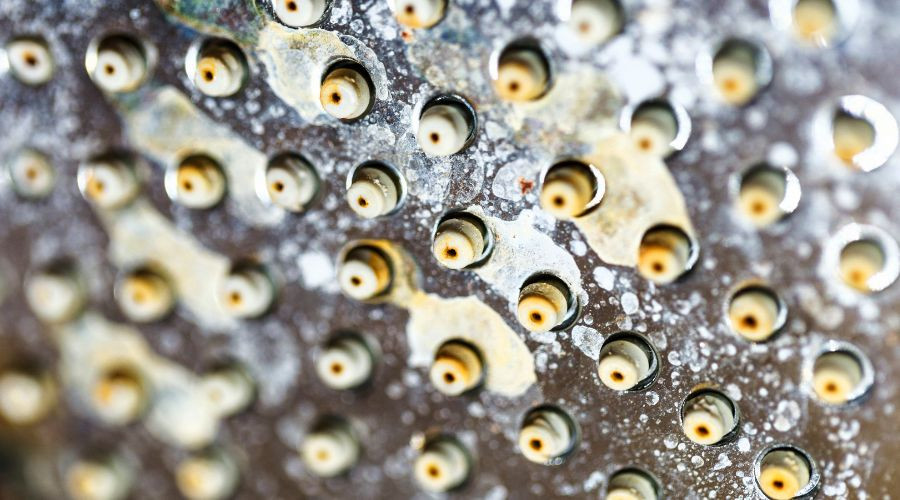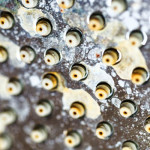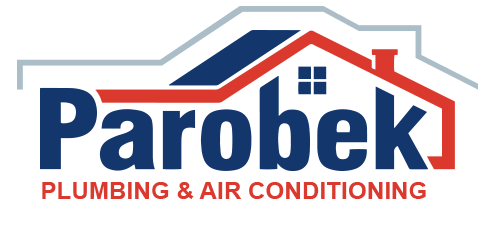What Is Hard Water?
If homes have hard water, it can slowly wreck their plumbing systems and appliances. Hard water can cause problems ranging from dry skin to damaged appliances.
Hard water contains high concentrations of dissolved minerals, primarily calcium and magnesium. These minerals are picked up as water passes through rock formations and soil, particularly limestone or chalk. While hard water is safe to drink and use for most household activities, it can cause various issues over time.
If homeowners notice signs of hard water, consider installing a water softener. Here’s what they need to know.
Signs of Hard Water
 Recognizing the signs of hard water is the first step toward resolving the problem. Plumbers recommend that homeowners look for key symptoms of hard water, including these common signs:
Recognizing the signs of hard water is the first step toward resolving the problem. Plumbers recommend that homeowners look for key symptoms of hard water, including these common signs:
- Dry Hair and Skin: Hard water strips moisture from family members’ hair and skin, leaving them dry and irritated.
- Spotted Glassware: Homeowners might notice cloudy spots on glasses and silverware after washing dishes, even if property owners just cleaned them.
- Stains and Deposits on Fixtures: Mineral deposits often cause unsightly white or yellow stains on faucets, sinks, and bathtubs.
- Faded Clothes: Laundry washed in hard water tends to fade, wear out faster, and feel rough.
- Scale Buildup in Pipes: Over time, hard water minerals accumulate inside the plumbing, reducing water flow and causing potential damage to their pipes and appliances.
If homeowners notice these signs, they should contact a plumber to install a water softener.
How Does a Water Softener Work?
 A water softener removes excess minerals from a home’s water supply, transforming hard water into soft water. This process improves water quality and protects the home’s plumbing and appliances.
A water softener removes excess minerals from a home’s water supply, transforming hard water into soft water. This process improves water quality and protects the home’s plumbing and appliances.
Water softeners typically use ion exchange. In this process, hard water flows through a tank filled with resin beads. The beads attract and trap calcium and magnesium ions, replacing them with sodium or potassium ions. The result is gentler soft water on the home and family members.
Types of Water Softeners
When choosing a water softener system, homeowners must pick one that meets their household’s needs. Common types include:
- Salt-Based Water Softeners: These traditional systems use sodium to exchange minerals, effectively reducing water hardness.
- Salt-free water Softeners: These systems condition the water instead of sodium, preventing minerals from forming scale without completely removing them.
- Dual-Tank Water Softeners: Ideal for larger households, these systems ensure homeowners always have soft water available by alternating between two tanks.
Benefits of Whole Home Water Softeners
Installing a whole-house water softener can quickly provide numerous benefits to households. Some of the top advantages include:
- Reduced Wear and Tear on Fixtures: Soft water minimizes mineral buildup, prolonging the life of a home’s faucets, pipes, and appliances.
- Easier Cleaning: They can eliminate the need to scrub scale deposits off bathroom surfaces and kitchen fixtures.
- Longer-Lasting Clothes: Softened water makes a household’s laundry brighter and softer, even after multiple washes.
- Healthier Hair and Skin: Soft water helps homeowners retain natural oils, keeping their hair shiny and skin hydrated.
- Spot-Free Dishes: Enjoy sparkling clean dishes and glassware without extra rinsing.
- Cost Savings: By preventing scale buildup, a water softening system reduces energy usage and extends the life of water heaters, dishwashers, and other appliances.
About Parobek Water Solutions
Parobek Plumbing & Air Conditioning experts provide excellent, dependable plumbing services to Bastrop County. A family-owned and operated company since 1991, they offer 5-star and same-day services. Call them today for water softener services in Elgin, TX.



